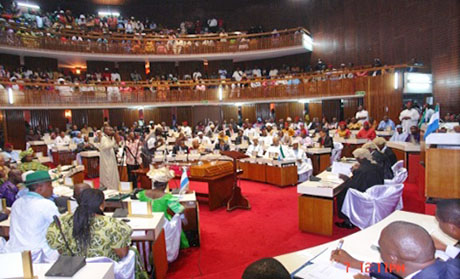By Amin Kef Sesay
Certain Civil Society Organisations have expressed grave concern about recent happenings in Parliament, especially those relating to the suspension of four Members including Hon. Hindolo Moiwo Ngevao, an anti-corruption whistle-blower, from participating in Parliamentary Committee proceedings even without having found them culpable of any wrongdoing.
They maintained that such a decision to suspend them is not only atrocious for any collective effort to strengthen democratic governance, but it also sends a very unfortunate message about Parliament’s attitude towards persons who raise their voices for accountability and institutional integrity.
It was cited that a press statement dated 20th October, 2020 issued by the Department of Public Relations of the Parliament of Sierra Leone stated as follows:
“Four Hon. Members of Parliament have been committed to the Parliamentary Committee on Privileges and Ethics for investigation, pending approval by the House for complaints relating to intimidation and verbal abuse, indecent and derogatory text messages, unverified corruption allegation against Parliament on BBC Focus on Africa and alleged arm-twisting by the leadership of Parliament resulting in resignation…”
The concern CSO pointed out that ironically, the same statement pointed out that “…the following Members of Parliament so referred are presumed innocent until proven otherwise by the said Committee’s investigation and recommendations.
They continued that while it may be within the powers of Parliament to inquire into the general conduct of the Members of Parliament, they as CSOs fail to see the legal basis for hurriedly suspending elected officials from performing their functions especially for whistleblowing on corruption.
According to them it is simply unjust and profoundly repugnant to all the guarantees of due process and presumption of innocence enshrined in the country’s 1991 Constitution.
“Corruption is pervasive and remains a major impediment to our collective effort to address poverty and deliver basic social and economic services, despite the best efforts of the Government of Sierra Leone and its partners,” they asserted.
It is, therefore, quite worrying, it was stated, that the leadership of Parliament has reacted angrily to public opinion on corruption and went further to punish MPs either for expressing their views about corruption in Parliament or complaining about attempts by the leadership of Parliament to scupper their efforts to address the scourge.
They expressed shock to learn that even before the Committee on Ethics and Privileges complete investigation of the misdemeanors the MPs and the public are unanimously complaining about how Parliament has turn round to punish the whistle-blowers by suspending them from their committees.
The Civil Society Organizations stated how they are particularly concerned that arm-twisting and unjustly punishing MPs for whistle-blowing on corruption will in turn discourage ordinary citizens who want to report corruption.
To them it is worrying, as recent (2020) studies by the Afrobarometer show that 61% of citizens fear the risk of retaliation for reporting corruption.
They said under the circumstances, the Speaker of Parliament and the leadership of all the political parties represented in Parliament are urged to immediately take steps to re-instate all parliamentary entitlements and privileges to the affected Parliamentarians.
The Civil Society Organizations further urged the leadership of Parliament to demonstrate more commitment in the fight against corruption by protecting persons who speak up against the scourge – rather than punishing or suppressing their voices.
“We stand ready to support Parliament in deepening the culture of accountability and integrity in Sierra Leone,” they concluded.
The Civil Society Organizations and Non-Governmental Organizations include: ActionAid Sierra Leone, Amnesty International – Sierra Leone, Budget Advocacy Network (BAN),Campaign for Good Governance (CGG), Campaign for Human Rights and Development International (CHRDI), Center for Accountability and the Rule of Law (CARL), Center for Democracy and Human Rights (CDHR), Citizens Advocacy Network (CAN), Foundation for Rural and Urban Transformation (FoRUT), Human Rights Defenders Network, Institute for Governance Reform (IGR, the 50/50, Group Sierra Leone, National Advocacy Coalition on Extractives (NACE), Network Movement for Justice and Development (NMJD),Peace Africa Alliance Consulting Education and Training Centre (PACET), Sierra Leone Association of Journalists (SLAJ), Society for Democratic Initiatives (SDI) and West African Network for Peacebuilding (WANEP) Sierra Leone.






